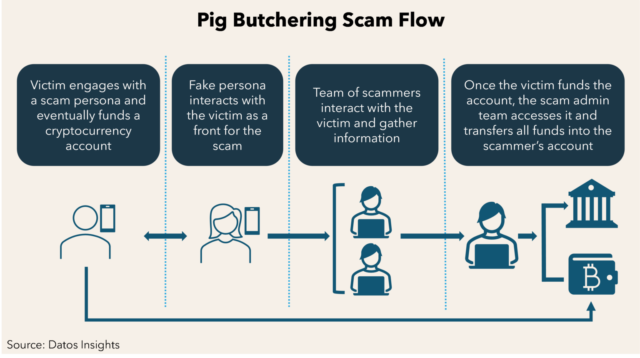The Department of Justice has seized approximately USD$15 billion in bitcoin linked to a massive cryptocurrency fraud.
The digital assets belonged to Chen Zhi, also known as “Vincent,” who oversaw a sophisticated “pig butchering” scam based in Cambodia. This seizure marks the largest forfeiture action in DOJ history. An indictment charging Zhi was unsealed Tuesday in federal court in Brooklyn, New York.
Zhi has been identified as the founder and chairman of Prince Holding Group. He remains at large, according to the U.S. Attorney’s Office for the Eastern District of New York. Prosecutors also said the conglomerate secretly expanded into one of Asia’s largest transnational criminal organizations.
U.S. Attorney Joseph Nocella indicated that this operation was one of the largest investment fraud operations in history. It has caused billions in losses worldwide.
“Prince Group’s scams have inflicted untold misery on victims, including here in New York, and exploited individuals forced to work against their will,” said Nocella.
Prince Group operates businesses in more than 30 countries. Prosecutors said it ran forced labour scam compounds in Cambodia.
Criminal organizations like Prince Group take hundreds of individuals from villages and force them to work in the scam compounds under threat of violence. Prosecutors said Zhi and executives used political influence and bribed officials to shield the operation from law enforcement across multiple countries.
Meanwhile, the DOJ continues to investigate the network and affiliates linked to Prince Group. Authorities emphasized that the case demonstrates the global reach of cryptocurrency fraud and the serious human exploitation behind these scams.
The organization coerced people held at these compounds into running cryptocurrency investment frauds, known as pig butchering scams.

Read more: ECB prepares Digital Euro infrastructure amid stablecoin risks
Read more: The Next Resource Boom: A Mugglehead roundup
Top executives shielded operation by bribing officials
These scams often involve fraudsters building long-term relationships with victims, sometimes through online dating platforms, to gain their trust. Once trust is established, scammers introduce fake cryptocurrency investment opportunities, convincing victims to transfer funds. Furthermore, the term “pig butchering” refers to the process of “fattening” the victim with false promises before “slaughtering” them financially.
Subsequently, they steal the funds, converting them into bitcoin or other assets. Victims often only realize the deception after substantial losses. Furthermore, the schemes rely on extensive coordination and manipulation, which makes them difficult to detect.
According to the Financial and Consumer Affairs Authority of Saskatchewan, Canadians lost CAD$3.4 million to pig butchering scams in 2024 alone. Furthermore, according to the Canadian Anti-Fraud Centre, this corresponded to an increase in romance and investment scams. This is a type of pig butchering scam where fraudsters contact victims on dating apps or social media, develop relationships to gain trust, and then convince them to hand over their money.
Globally, pig butchering scams have become a significant concern. In 2024, scammers stole an estimated CAD$75 billion from victims worldwide using this type of fraud. In addition, pig butchering revenue grew nearly 40 per cent year-over-year, and the number of deposits to pig butchering scams grew nearly 210 per cent year-over-year, indicating an expansion of the victim pool.
.













